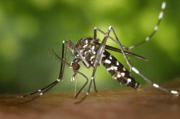Australia will be trialling new technology converting human urine into fertilizer
By
- Replies 15
Wow, folks, we bet a story on our pee isn’t what you expected to click on and read today! A new technology converting human urine into plant fertilizer is currently in talks of being trialled her in Australia.
As part of a four-year, government-backed project, Australians might start to see toilets specifically designed with urine separation technology — that would filter the good nutrients from our pee and remove all the unwanted chemicals including heavy metals — in parks and public spaces in the near future.
The project is being led by the Cities Research Institute (CRI) at Griffith University in Queensland, Australia, under the $2 million ARC Research Hub for Nutrients in a Circular Economy (NICE).
The initiative is part of a four-year, government-backed project. Credit: University of Melbourne.
For those who are curious why urine is being targeted by this initiative, it should be noted that key macronutrients — potassium, phosphorus and nitrogen — can be found in this body byproduct, making them excellent fertilisers for plants.
Trials are currently being planned for public parks in Sydney and Brisbane, with authorities currently gauging the public's opinion of the scheme.
University of Melbourne chemical engineer Dr Stefano Freguia is the author of a paper on a potential toilet design, proposing "the world’s first nutrient recovery system".
The toilet, which will feature a technology with a U-bend for nutrient separation and extraction, is said to be self-operating where it will power itself and will not require any human input or control.
Potential sites for trial include public parks in Brisbane and Sydney. Credit: Stock Image/@chinasong.
Researchers from CRI and other universities are working with state governments in identifying potential trial sites, claiming that the first batch of toilets may be rolled out as early as this year.
CRI chief investigator Professor Cara Beal described human urine as "a treasure trove of liquid gold nutrients which could help grow the crops that we eat".
Prof Beal said: "It's a concentrated supply of all the nitrogen, phosphorus and potassium needed for plant growth and is surprisingly clean compared to other waste."
"We're working with Queensland Urban Utilities, Department of Environment and Science, and Brisbane City Council Parklands Service to determine the value of urine-based fertiliser and the impact it can have on soil and plant production."
It should be noted that we currently mine phosphorus from rocks and that we use expensive, energy-intensive technology to extract nitrogen from the atmosphere, just so that they can be used in fertilisers.
We currently mine the nutrients that we use for fertilisers from mines and the atmosphere. Credit: Shutterstock.
Not only will this change reduce the massive production costs of fertiliser production, but reduce the environmental impact and help meet sustainability goals.
Prof Beal said: "Current methods to create fertiliser pull nitrogen out of the atmosphere in an energy-intensive process with a massive carbon footprint."
"As a society, if we are to get to net-zero carbon emissions we are going to have to move away from synthetic fertilisers."
"Phosphorus on the other hand is mined, with supplies forecast to last no more than 100 years, so it makes no sense to flush these essential nutrients down the toilet."
While human urine seems to be a plausible fertiliser, direct use of this body waste is not recommended due to the presence of active organic molecules and heavy metals in them. So, a filtering system is needed.
"Only recently have humans become squeamish about recycling the waste we produce to grow essential food crops and other plants," the chief researcher said.
"Part of our research will investigate why we have become uncomfortable with the idea of harvesting urine for fertiliser, and how we can temper this concern."
Prof Beal confirmed that they are awaiting full regulatory approval before rolling out the toilets in public parks.
Additionally, they are gathering enough evidence that the project does not pose public health risks in any way.
"The public and regulatory authorities have legitimate concerns around potential health issues the technology could pose, with the antibiotics, drugs, hormones and other chemicals we consume that end up in our waste streams," she said.
Would you be willing to eat crops grown using urine-based fertiliser? Let us know in the comments below!







